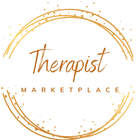Being a therapist is no easy feat. It requires a combination of empathy, patience, dedication, and creativity. It is a profession that demands a lot from its practitioners, but it is also one that offers immense rewards. As a therapist, I have been fortunate to have had the opportunity to help countless individuals overcome their personal struggles and emotional traumas. However, there is one thing that continuously frustrates me – the lack of access to well-designed and effective therapy resources.
As a therapist, it has always been important for me to offer the best possible support to my clients. However, this is easier said than done. The abundance of resources available online, in books, and other media, has made it challenging to sift through the clutter. Often, the resources I find are not designed to cater to the specific challenges my clients face. Other times, the resources are outdated, or simply not effective.
In this article, I want to explore the reasons why effective therapy resources are critical and highlight some of the frustrations that therapists like myself face regularly.
The Importance of Effective Therapy Resources
Effective therapy resources are critical to the success of any therapeutic journey. They offer individuals the chance to become more self-aware, have a deeper understanding of their mental health state, and guide them through the healing process. When someone is struggling with a mental health issue, there are a lot of factors at play. Sometimes, talking to a therapist is not enough. Clients benefit from having additional resources to support them.
Effective therapy resources provide a structured approach to therapy, making it easier for clients to work through their emotional challenges. Furthermore, these resources are often designed to cater to the individual needs of clients. They help break down the challenges they face and guide them through a journey of self-discovery. Lastly, effective therapy resources make it possible for individuals to work on their mental health outside of therapy. In the long run, this improves their mental wellness.
The Frustrations of a Therapist
As a therapist, I have come to appreciate the value of effective therapy resources. However, I have also observed some of the frustrations that come with trying to find and use these resources. First, there is an overwhelming amount of therapy resources available today. This makes it difficult to navigate and find the right resources for my clients.
Secondly, many therapy resources are not designed to cater to the specific needs of individuals. They tend to be generic in nature, and as such, may not address the unique challenges each client faces. This makes it challenging to use these resources in therapy sessions as they may not be as effective.
Lastly, some resources are outdated or simply do not offer a modern approach to therapy. Mental health issues are constantly evolving and changing, and as such, it is important to have resources that speak to the current challenges individuals face.
What Therapists Need from Effective Therapy Resources
Young therapists and veterans alike require effective therapy resources that cater to the mental health challenges their clients face daily. A successful therapeutic journey requires a lot of dedication and effort from both the client and therapist. However, providing the right resources can act as an excellent catalyst for change.
Effective therapy resources should be easy to navigate, designed to cater to individual needs, and up-to-date on current challenges people face. They should be able to teach clients how to cope more effectively with their mental health challenges. Ultimately, they should support clients in achieving a greater sense of emotional wellness.
In conclusion, the lack of well-designed and effective therapy resources is an ongoing frustration for therapists. Effective resources are crucial to the success of therapy, and they offer clients the extra support they need to overcome mental health challenges. To efficiently cater to the unique needs of each client, therapy resources need to be tailored to their specific situation, easy to navigate, and offer modern approaches to mental health challenges. If we want to meet the evolving needs of clients effectively, we need to invest in the development of high-quality therapy resources that can support both clients and therapists on their therapeutic journeys.

